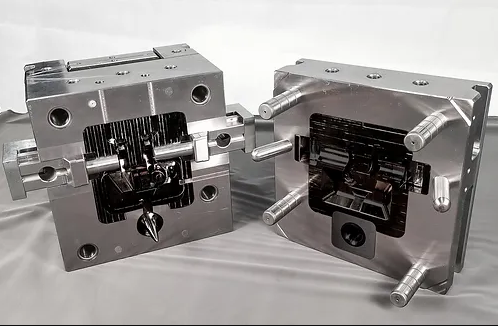Aluminum is one of the most widely used materials in the manufacturing industry. Its unique properties, including high strength-to-weight ratio, excellent corrosion resistance, and low density, make it an ideal choice for a variety of applications. To harness the full potential of aluminum, precision machining techniques are employed to shape and transform this versatile metal into intricate components.
Precision machining is a process that removes material from a workpiece to create the desired shape and size. It requires advanced tools, equipment, and expertise to achieve accurate and precise results. In the case of aluminum machining, special considerations need to be taken into account due to the material’s specific characteristics.
One of the primary techniques used in aluminum machining is milling. Milling involves the use of rotary cutters to remove material from a workpiece. In the case of aluminum, high-speed milling is often employed to minimize heat generation and reduce the risk of work hardening. The use of high-speed machining centers with dedicated aluminum cutting tools ensures efficient and precise machining.
Another technique commonly used in aluminum machining is turning. Turning is a process that rotates a workpiece while a cutting tool removes material from its surface. In aluminum machining, carbide or diamond-tipped cutting tools are used to achieve high cutting speeds and minimize tool wear. CNC (Computer Numerical Control) turning machines are often utilized to ensure accuracy and repeatability in the machining process.
In addition to milling and turning, drilling is another essential technique used in aluminum machining. Drilling involves creating holes in the workpiece using specialized drill bits. High-speed drilling is often employed to prevent chip clogging and ensure clean and precise holes. Coolant is frequently used to dissipate heat and lubricate the cutting process, improving the overall machining efficiency.
Apart from these primary machining techniques, aluminum can also be subjected to other specialized processes, such as reaming, tapping, and threading, to create more complex components. These secondary operations further enhance the functionality and versatility of aluminum parts.
Aluminum machining finds applications in various industries, including aerospace, automotive, electronics, and construction. In the aerospace industry, aluminum components are widely used due to their lightweight and high strength properties. From aircraft frames to engine components, precision machining ensures the production of reliable and durable aluminum parts.
In the automotive industry, aluminum machining plays a vital role in the production of lightweight and fuel-efficient vehicles. Aluminum engine blocks, transmission components, and chassis parts are examples of the extensive use of precision machining techniques in this industry. The superior strength-to-weight ratio of aluminum not only improves fuel efficiency but also enhances vehicle performance and safety.

The electronics industry also benefits from aluminum machining. Aluminum heat sinks, casings, and connectors are commonly produced using precision machining techniques. The excellent thermal conductivity of aluminum makes it an ideal choice for heat dissipation in electronic devices, ensuring optimal performance and reliability.
In the construction industry, aluminum machining contributes to the production of various architectural and structural components. From window frames to curtain walls, precision-machined aluminum parts offer durability, aesthetic appeal, and energy efficiency. The ease of machining aluminum allows for intricate designs and customization, meeting the diverse needs of modern construction projects.
In conclusion, aluminum machining is a crucial process that enables the transformation of aluminum into precision components. Through techniques such as milling, turning, and drilling, the unique properties of aluminum can be harnessed to meet the demands of various industries. From aerospace to automotive and electronics to construction, precision-machined aluminum parts play a vital role in enhancing performance, efficiency, and reliability. As technology advances, the future of aluminum machining holds even greater potential for innovation and optimization in manufacturing industries worldwide.
-

- Thixomolding магнезиеви части и компоненти средна платка за мобилен телефон
-

- OEM рама от магнезиева сплав под високо налягане за велосипед
-

- Ляти под налягане магнезиеви части, капак на корпуса на лаптопа D
-

- Магнезиеви леярски части Кормилна колона
-

- CNC обработени части Кормилна скоба
-

- Корпус на двигателя от отлято под налягане електрическо превозно средство от магнезиева сплав, монтиран в средата

 0086-750-5616188
0086-750-5616188 +86 13392089688
+86 13392089688 sales@zhongmei-tech.com
sales@zhongmei-tech.com







